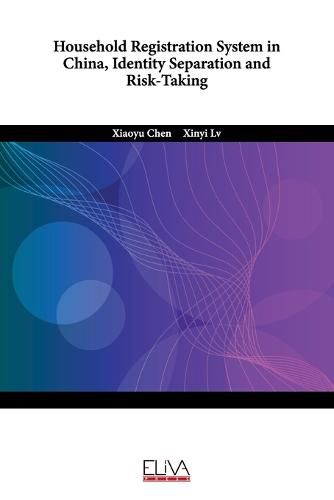Readings Newsletter
Become a Readings Member to make your shopping experience even easier.
Sign in or sign up for free!
You’re not far away from qualifying for FREE standard shipping within Australia
You’ve qualified for FREE standard shipping within Australia
The cart is loading…






Breaking the urban-rural dichotomy and achieving integrated development of urban and rural areas is an important issue. In 1958, China promulgated the Regulations on Household Registration, which stipulates that individuals are required to register for household registration after birth, and the state divides residents into two categories of agricultural and non-agricultural households according to their two permanent residences in rural and urban areas, and constructs two categories of household registration based on the status of household registration. The reform of the unified household registration system marks the history of the dual urban-rural household registration system that distinguishes the nature of household registration by "agricultural" and "non-agricultural", and the resulting changes in residents' identity may profoundly affect their behavior. This paper explores the impact of the unified household registration system on individual risk-taking from a microscopic perspective, with the aim of discovering the deep-seated mechanisms that influence individual economic behavior and financial decisions. This paper finds that the institutional arrangement of unified household registration breaks the identity separation between urban and rural areas, which releases the prudent risk attitude caused by "identity uncertainty" and makes individuals engage in more active risk-taking behavior. Further, the higher degree of risk preference and more systematic acquisition of financial knowledge brought about by the unified hukou status are possible channels to influence risk-taking intentions.
$9.00 standard shipping within Australia
FREE standard shipping within Australia for orders over $100.00
Express & International shipping calculated at checkout
Breaking the urban-rural dichotomy and achieving integrated development of urban and rural areas is an important issue. In 1958, China promulgated the Regulations on Household Registration, which stipulates that individuals are required to register for household registration after birth, and the state divides residents into two categories of agricultural and non-agricultural households according to their two permanent residences in rural and urban areas, and constructs two categories of household registration based on the status of household registration. The reform of the unified household registration system marks the history of the dual urban-rural household registration system that distinguishes the nature of household registration by "agricultural" and "non-agricultural", and the resulting changes in residents' identity may profoundly affect their behavior. This paper explores the impact of the unified household registration system on individual risk-taking from a microscopic perspective, with the aim of discovering the deep-seated mechanisms that influence individual economic behavior and financial decisions. This paper finds that the institutional arrangement of unified household registration breaks the identity separation between urban and rural areas, which releases the prudent risk attitude caused by "identity uncertainty" and makes individuals engage in more active risk-taking behavior. Further, the higher degree of risk preference and more systematic acquisition of financial knowledge brought about by the unified hukou status are possible channels to influence risk-taking intentions.